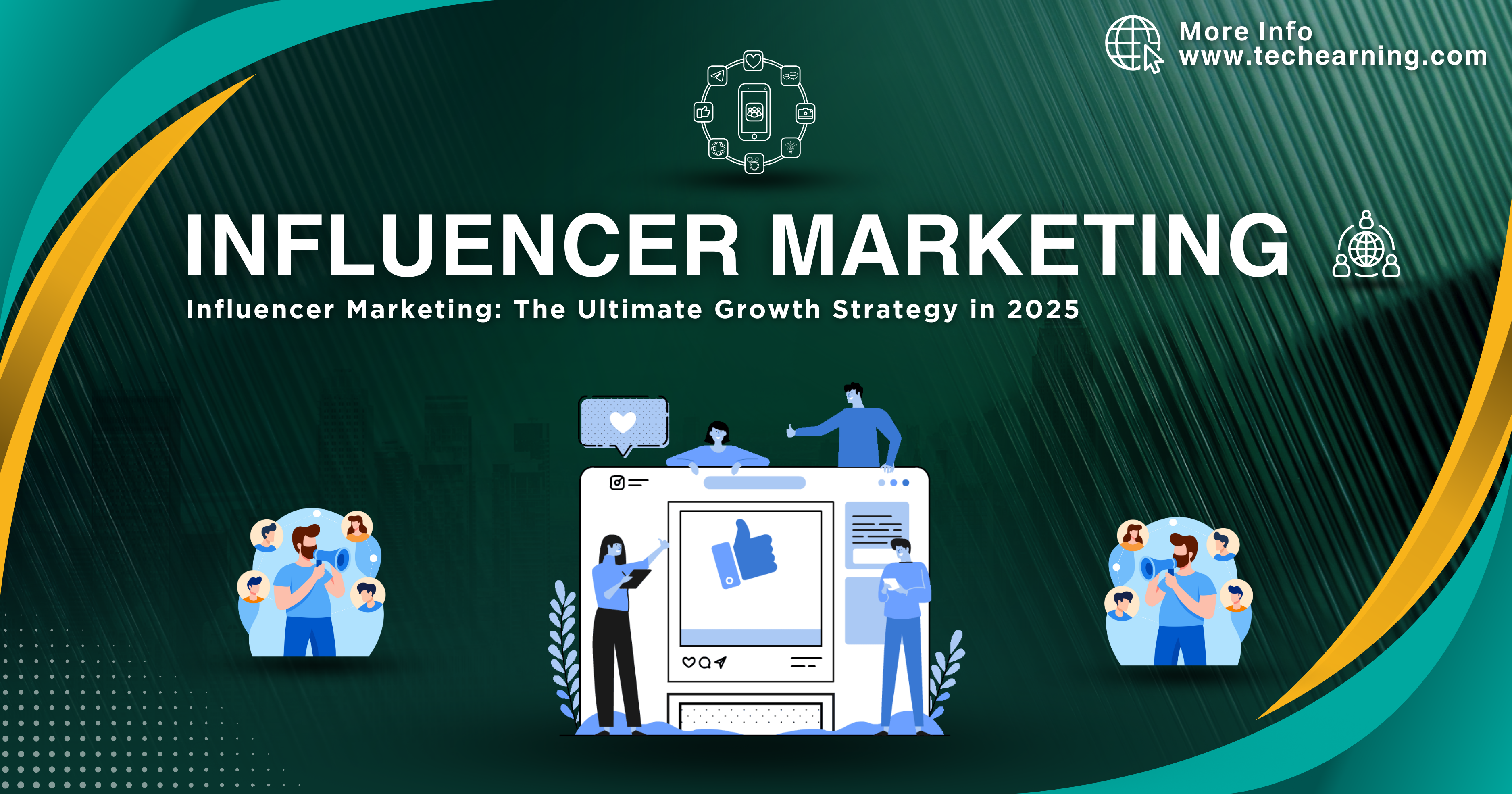
Influencer Marketing: The Ultimate Growth Strategy in 2025
What is Influencer Marketing ?
Influencer marketing is a powerful digital marketing strategy where brands collaborate with influencers to promote products or services. In 2025, this strategy has evolved significantly, becoming one of the most effective ways to reach targeted audiences and drive high engagement.
Why is Influencer Marketing Important ?
- High Engagement Rates: Influencers have a loyal audience that trusts their recommendations, leading to higher conversion rates.
- Brand Awareness & Credibility: Partnering with the right influencer can enhance brand credibility and increase visibility.
- Targeted Audience Reach: Brands can connect with niche audiences effectively through influencers in specific industries.
- Cost-Effective Compared to Traditional Ads: Influencer marketing often provides better ROI than traditional advertising methods.
- Boosts SEO & Website Traffic: Influencer-generated content helps in link-building, increasing organic traffic.
- Enhances Social Media Presence: Regular collaborations with influencers help brands maintain a strong digital presence.
Types of Influencers in Influencer Marketing
- Mega Influencers: Celebrities with millions of followers.
- Macro Influencers: Industry leaders with 100k to 1M followers.
- Micro Influencers: Individuals with 10k to 100k followers, known for high engagement.
- Nano Influencers: Everyday people with under 10k followers but strong influence in niche communities.
- Local Influencers: These influencers focus on a specific region or locality, making them effective for localized marketing campaigns.
How to Create a Successful Influencer Marketing Strategy ?
Define Your Goals
- Increase brand awareness
- Generate leads and conversions
- Boost engagement on social media
- Improve brand credibility
- Drive website traffic
Identify the Right Influencers
- Research influencers in your industry
- Check engagement rates, audience demographics, and content quality
- Use influencer marketing platforms for collaboration
- Analyze previous brand collaborations of influencers
Develop a Collaboration Strategy
- Sponsored posts
- Product reviews
- Giveaways and contests
- Brand ambassadorships
- Influencer takeovers on social media
- Guest blog posts on brand websites
Set a Budget and Negotiate Terms
- Decide between fixed payments or commission-based partnerships
- Ensure clear contract terms for deliverables and timelines
- Consider gifting products for nano and micro influencers
- Include performance-based incentives to maximize results
Track and Analyze Performance
- Use tools like Google Analytics, Rank Math SEO, and social media insights
- Measure engagement rates, click-through rates (CTR), and ROI
- Adjust strategy based on performance data
- Compare influencer-driven traffic vs. organic traffic
Common Mistakes in Influencer Marketing & How to Avoid Them
- Choosing the Wrong Influencer: Always check audience authenticity before collaborating.
- Lack of Clear Goals: Define clear KPIs to measure campaign success.
- Ignoring Compliance Rules: Follow disclosure guidelines like #ad or #sponsored.
- One-Time Collaborations: Long-term partnerships build trust and credibility.
- Overlooking Engagement Metrics: High follower count doesn’t always mean better results.
- Not Diversifying Influencers: A mix of micro, macro, and nano influencers can maximize reach and engagement.
- Failure to Optimize Content: Brands must ensure influencers create content that aligns with their messaging and values.
- Not Leveraging UGC (User-Generated Content): Encouraging influencers to promote user-generated content can further enhance authenticity.
The Future of Influencer Marketing
The influencer marketing landscape is continuously evolving. Trends such as AI-driven influencer selection, virtual influencers, and performance-based collaborations are shaping the future. Brands that adapt to these changes will thrive in the competitive digital marketing world.
Additionally, social commerce integration with influencer campaigns will grow, making direct purchases from influencer content more seamless. Platforms like Instagram, TikTok, and YouTube are enhancing their shopping features, making influencer marketing even more profitable.
Moreover, brands are expected to focus on authenticity and transparency, ensuring influencers provide genuine recommendations. Short-form video content, live streaming, and exclusive content collaborations will dominate the influencer marketing space.
Conclusion
Influencer marketing in 2025 is a game-changer for businesses looking to boost brand visibility and engagement. By strategically choosing influencers, setting clear goals, and continuously optimizing campaigns, brands can achieve sustainable growth. As digital marketing continues to evolve, influencer marketing will remain one of the most effective tools to connect with audiences and drive sales.
For more digital marketing insights, visit our Home Page.
